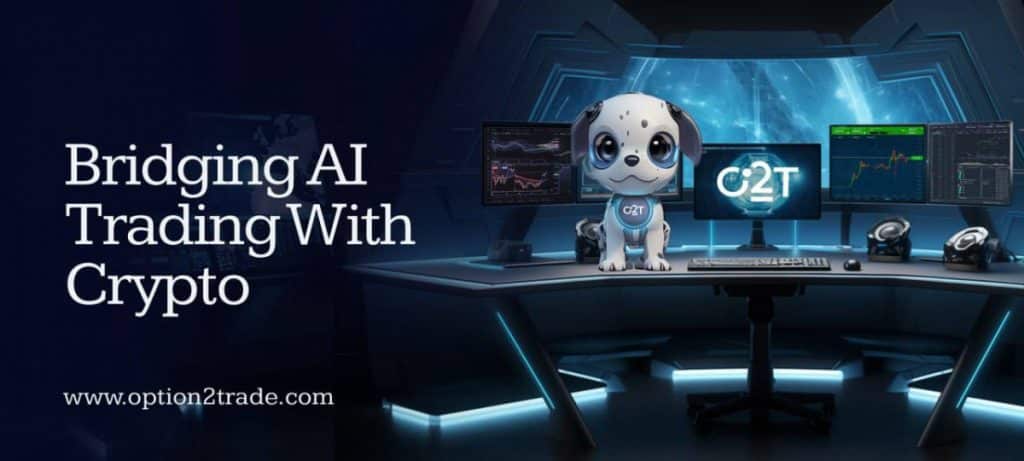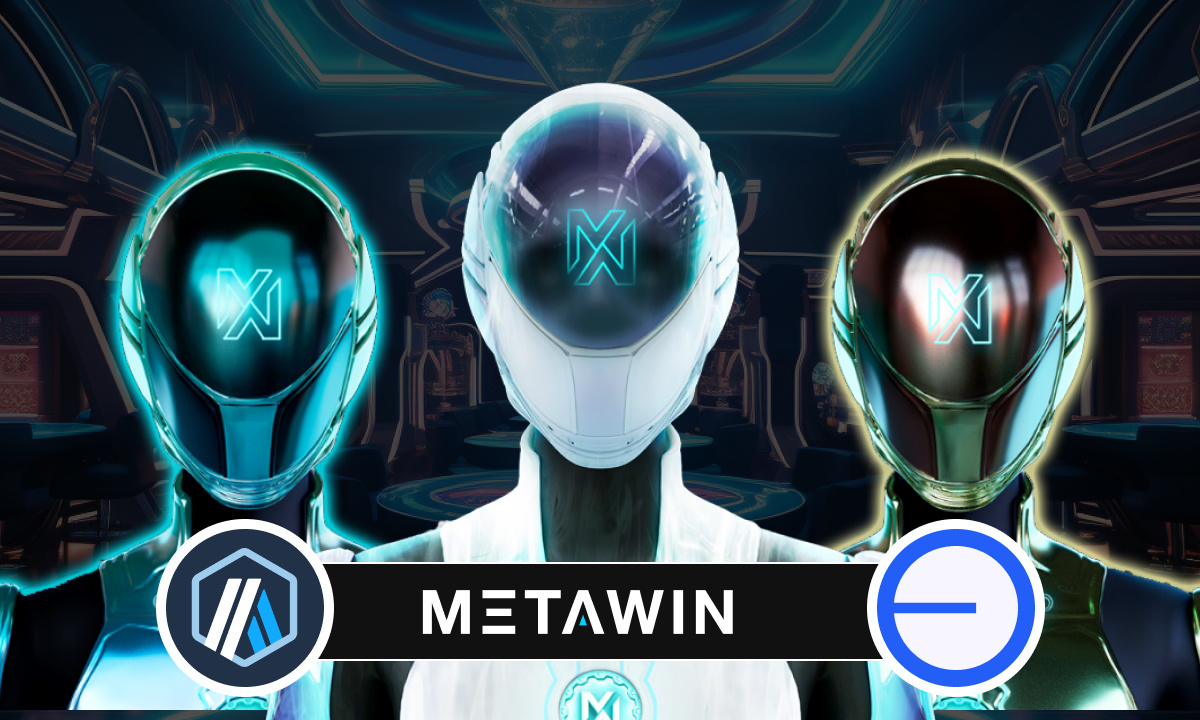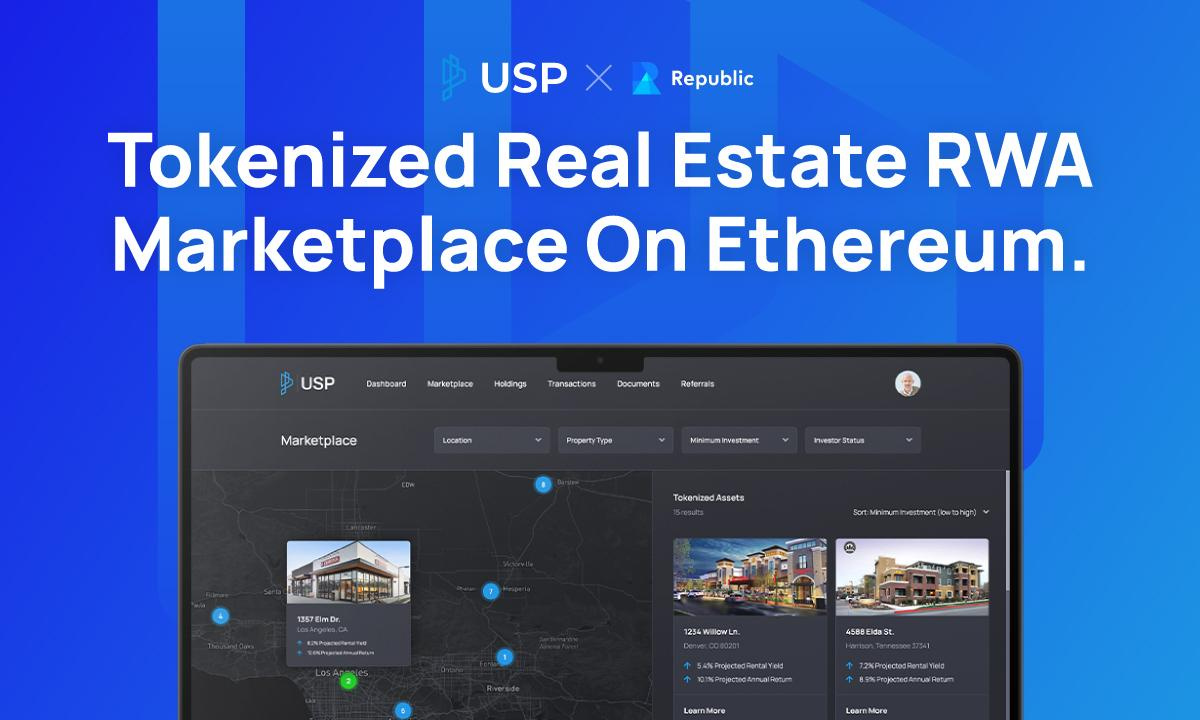Is Solana the “Ethereum Killer”? Find Out Why Investors are Buzzing Over Option2Trade

In Brief
Below, we briefly look at each network and whether Solana (SOL) has succeeded in “killing” Ethereum (ETH). We also explore the buzz around Option2Trade (O2T), a licensed, next-generation, no KYC, trading platform that embraces social finance (Social-fi) and artificial intelligence (A.I)

Solana (SOL) being an “Ethereum killer” is a belief that has ruled the crypto market space since the blockchain’s inception. Part of the reason that fueled this narrative is that Solana (SOL) launched with a proof of stake (Pos) consensus mechanism while Ethereum (ETH) was still being powered by the energy-intensive and less scalable proof of work (PoW) system.
When Ethereum (ETH) later upgraded to a PoS system, the narrative started weakening. However, the belief hasn’t completely faded, shifting from the blockchains’ strengths to the price impact of the two networks’ native tokens, SOL and ETH respectively.
Below, we briefly look at each network and whether Solana (SOL) has succeeded in “killing” Ethereum (ETH). We also explore the buzz around Option2Trade (O2T), a licensed, next-generation, no KYC, trading platform that embraces social finance (Social-fi) and artificial intelligence (A.I). The platform offers access to forex, altcoins, CFDs, and stocks.
What is Solana?
Created in 2017 by Anatoly Yakovenko and Greg Fitzgerald, Solana (SOL) is a PoS-based blockchain that’s tuned to support decentralized finance (DeFi) and web3 projects through the use of decentralized applications and smart contracts.
Its use of a PoS rather than the PoW system that was common during its inception was meant to help push Bitcoin and Ethereum (ETH) out of business by offering low transaction fees and higher transaction speed of more than 50,000 transactions per second.
This helped it gain widespread adoption putting pressure on Ethereum (ETH) and earning developer confidence leading to a growth of web3 applications, blockchain games, decentralized lending, non-fungible token (NFT), and DeFi projects within a notably short time.
What is Ethereum?
Ethereum (ETH) is a blockchain platform formed in 2015 by Gavin Wood and Vitalik Buterin with the latter being the face of the project. Originally, Ethereum (ETH) used a PoW system just like its big brother Bitcoin. It however later started plans to move to a PoS mechanism to reduce the energy consumed when adding blocks to the network.
In September 2022, it completed the shift to a PoS system welcoming Ethereum (ETH) 2.0, bringing enhanced security and scalability to the network.
The network is known majorly for powering DeFi, gaming, and NFT projects and is home to popular DeFi and NFT projects like UniSwap and the Bored Ape Yacht Club NFT collection, respectively.
Has Solana Managed to “Kill” Ethereum?
Not quite. In its quest to outdo Ethereum (ETH), it has been criticized for suffering repeated outages. The crypto community has also expressed its dissatisfaction with Solana (SOL) allocating a notable amount of SOL tokens to VC funds. The two accusations have derailed its mission to “kill” its rival.
The platform received another blow when Yakovenko said that the “Ethereum killer” tag is lame. He also admitted that despite the two being rivals, Solana (SOL) isn’t out to kill Ethereum (ETH).
On usage, Solana (SOL) continues to attract more users even beating Ethereum (ETH) in decentralized exchange (DEX) trading volume. It has also received support from leading industry players. For example, leading crypto wallet MetaMask (mainly associated with Ethereum (ETH)) announced features linking it to the Solana (SOL) blockchain.
Popular Ethereum-based project MakerDAO has also hinted at leaving Ethereum (ETH) for Solana (SOL) while Visa settled for Solana (SOL) during its USDC settlement pilot phase.
Despite the overwhelming activities on the blockchain, the network is yet to outdo Ethereum (ETH) on critical metrics like the number of developers and the total value locked (TVL) on the blockchain.
On TVL, for example, Solana (SOL) has a TVL of $1.27 billion compared to Ethereum’s (ETH) $28.14 billion according to DefiLlama as of January 8, 2024. Ethereum (ETH) rules the TVL space controlling 54% of the total value locked in all chains compared to Solana’s 2.3%.
Why Are Investors Buzzing Over Option2Trade?
An Elaborate Roadmap and Achievable Future Plans
Option2Trade (O2T) is attracting sizable chatter in crypto circles and investor tables due to its elaborate 4-stage roadmap. The first stage is almost done to pave the way for stage two where the platform will introduce its users to staking and the launch of its native token O2T that’s currently in the pre-sale stage.
Stages three and four will bring social trading, a non-custodial wallet, an NFT trading exchange, and a gaming platform.
In the future, Option2Trade (O2T) has its eyes set on tokenizing real-world assets (RWAs). According to the platform, interfacing the physical world with the decentralized world can create new investment and trading opportunities further boosting early investors’ ROI due to increased platform usage.
Positive Security Audit Results
In an environment where hacks are common news, investors are leaning towards audited blockchain projects. Option2Trade (O2T) has embraced responsible blockchain development and interaction and its project has been audited by several leading blockchain security firms like Cyberscope, Hacken, and Blockaudit.
Cyberscope, for example, gave O2T a low-risk rating with a pass mark of 77%. The rating is 76% on security, 78% on market stability, and 97% on fundamentals.
An Upcoming NFT Market
Option2Trade (O2T) has a plan to sit at the same table as leading NFT exchanges like OpenSea, Blur, and Magic Eden. Its plans to launch an NFT marketplace, unlike with other exchanges, is meant to improve its users’ portfolios while introducing them to a different type of web3 asset.
It’s O2T Token Pre-sale
Crypto token pre-sales are often marred with controversy with most of the tokens going to the team fueling fears of centralization in a decentralized project. Option2Trade (O2T) is taking a less popular route by putting 71% of all tokens in the hands of investors and liquidity providers. This gives investors a seat at the decision-making table, among other benefits.
Conclusion
Solana (SOL) is yet to “kill” Ethereum and Yakovenko’s sentiments aren’t clear whether he’s admitting defeat after failing to outdo Ethereum (ETH). However, it’s evident that Option2Trade (O2T) is giving investors concrete reasons to invest with the platform. From a positive security audit, a community-centric O2T token pre-sale, and a clear and actionable roadmap, investors are siding with the winning horse in the race to build intuitive products that fuse web3, DeFi, Social-fi, and traditional finance.
For more information on the Option2Trade (O2T) Presale:
Visit Option2Trade
Join and become a community member:
https://twitter.com/Option2Trade_
Disclaimer
In line with the Trust Project guidelines, please note that the information provided on this page is not intended to be and should not be interpreted as legal, tax, investment, financial, or any other form of advice. It is important to only invest what you can afford to lose and to seek independent financial advice if you have any doubts. For further information, we suggest referring to the terms and conditions as well as the help and support pages provided by the issuer or advertiser. MetaversePost is committed to accurate, unbiased reporting, but market conditions are subject to change without notice.About The Author
Gregory, a digital nomad hailing from Poland, is not only a financial analyst but also a valuable contributor to various online magazines. With a wealth of experience in the financial industry, his insights and expertise have earned him recognition in numerous publications. Utilising his spare time effectively, Gregory is currently dedicated to writing a book about cryptocurrency and blockchain.
More articles

Gregory, a digital nomad hailing from Poland, is not only a financial analyst but also a valuable contributor to various online magazines. With a wealth of experience in the financial industry, his insights and expertise have earned him recognition in numerous publications. Utilising his spare time effectively, Gregory is currently dedicated to writing a book about cryptocurrency and blockchain.






















































